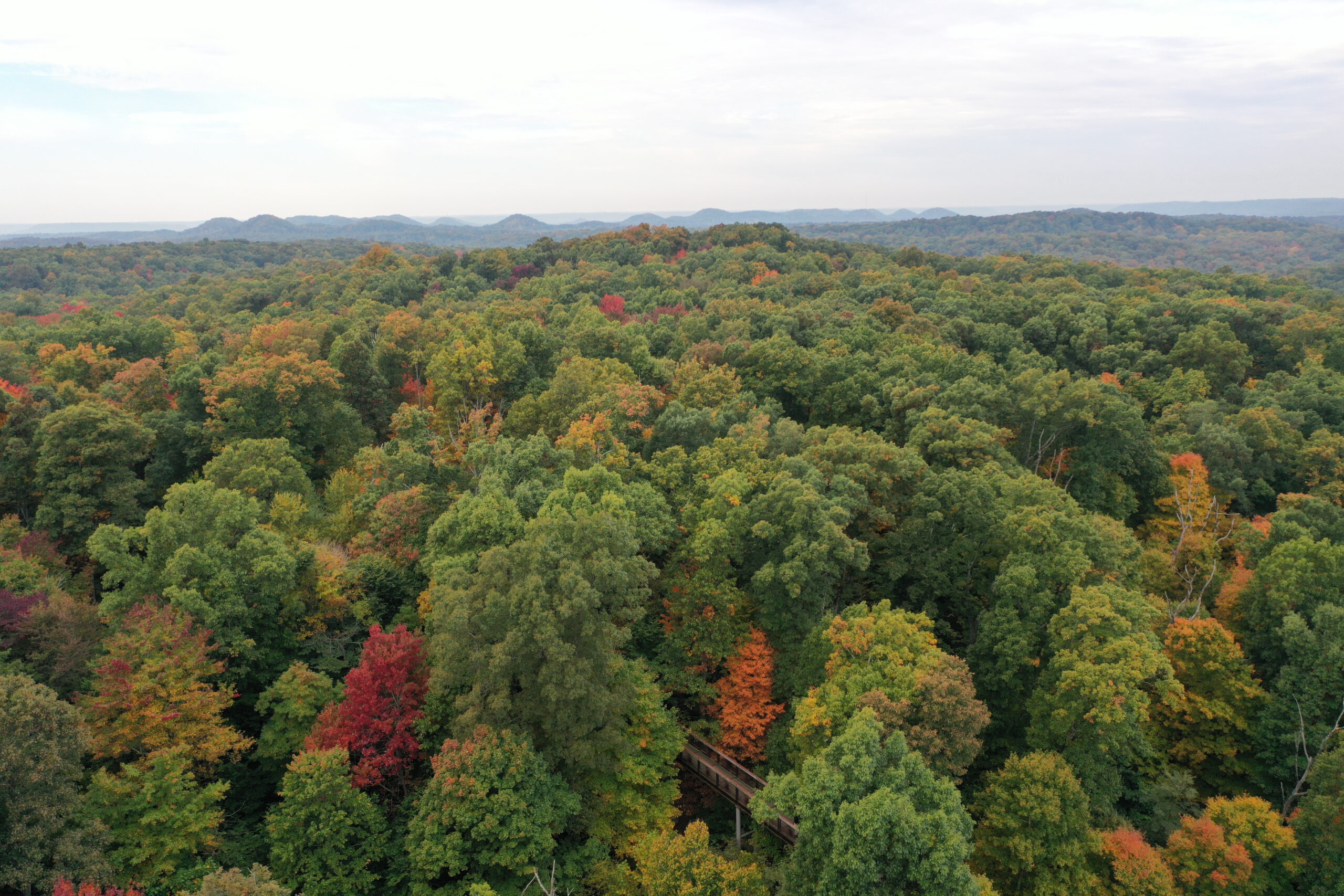Many of you may have noticed the spring like landscape at Bernheim or in your neighborhood in the last few weeks. The early blooms are not that harmful to our plants overall. Many of our trees and shrubs are still dormant and our return to colder temperatures this week should keep further blooms from coming on too early. We may see some diminished blooming from some our earliest species, such as forsythia and quince, but if the cold weather stays, most will hold off, still allowing for a colorful spring. If it stays warm, we could see some damage to fruit setting in next year because of the need for a cold period. Blooms could also flower too early and succumb to sudden freeze. At least we aren’t going into an ice age – that could be really bad for our flowers.
Nature is resilient. This is not the first time our native ecosystems have experienced an odd winter and it won’t be the last. Just like we get exceptionally cold winters from time to time, so do we get exceptionally warm ones. For the most part, the coming spring will look like most other springs. There will be minor shifts in bloom times, a potential decrease in the number of blooms on some plants and the fruit set may be different. The bottom line is that nature is so incredibly complex that it’s difficult to make any kind of accurate prediction of what an exceptionally warm December might bring.
This is a great opportunity to become a keen observer. Go outside and look at the buds on the trees. In fact, look at them regularly and closely. Are they swelling and getting larger? Do they look to be the same from day to day? Pick a single branch and return weekly to make observations. Take pictures. Make notes. In a world where everything moves at internet speed it’s calming to have a touchstone in nature.
From a climate change perspective, an odd winter (warm or cold) is statistical noise. Nature is variable. What is more important to figuring out whether or not we are living on a warming or cooling planet are averages from very large sets of data. That is the job of climatologists. Since they are the people trained in the science of making sense of our climate we should defer to them about what this winters warm weather means in the bigger picture. Weather is local. Climate is global.

